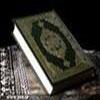Quran Is Not for Muslims Alone

he very first verse in the Quran reads, (1:2) “[All] praise is [due] to Allah, Lord of the worlds” and the very last chapter opens with this line, (114:1) “Say, "I seek refuge in the Lord of mankind,” and there is a whole lot in between. God chose to address the entire mankind, and rightfully so. Quran is for the whole humanity and not just Muslims exclusively.
First of all, God is not the God of Muslims and no where he claims that in holy Quran. He is the creator of the universe(s), which is within and beyond our imagination. Quran is a book of guidance to preserve the cohesiveness within and what surrounds us; people and the environment.
Nothing in the universe will survive if it goes off balance and is not intact. Thank God everything is created in balance and harmony, “And the heaven He raised and imposed the balance…” (55:7-13) with billions of other elements interconnected and interdependent on each other to function cohesively.
In fact, the entire creation can be broadly classified into Matter and Life. Planets, stars, seasons and plants are programmed to function obediently (55:5-6) with precision, whereas humans were not put on an auto-pilot, they were instead given a free will to manage and maintain their own balance, and of course there was the guidance for everyone.
God says (49:13) that he has created us into many tribes, communities, nations and by extension faiths, ideas, shapes, and colors -- and all of us can trace back our origins to a singular couple referred to as Adam and Eve. Given that diversity, we are bound to have conflicts and compete for the resources. So, he adds, the best ones among you are those who will take the time to know each other, he knows that knowledge leads to understanding and understanding to acceptance and appreciation of different points of view.
God does not miss a beat in communicating with his creation, and tells us not to compel others to be like you (2:256) let it come from their hearts for common goodness, and let others be others and you be you (109:6). Indeed, when you respect the otherness of others, and accept the God given uniqueness to people, then conflicts fade and solutions emerge to live in harmony.
Had he willed, he could have made us all into a single community or created all of us precisely alike (5:48), but he chose to create each one of us to be unique with our own thumb print, eye print, DNA, taste buds, belief buds, races, nations and ethnicities.
God loves us all, and no one is deprived of his love; he has reached out to every human through a peace maker, messenger, prophet, reformer, a wise man or simply a good friend that brings sense to living. The creator offers a variety of guidance to the mankind, no matter where you live, the guidance is there, the guidance that leads to live in peace, and without fear of the other. He says I have sent a peacemaker to every nation and every tribe.
What does God want? Like a mother who wants her children to live well; a teacher who wants his students to do well; and the chef who wants his patrons to enjoy his food.... God wants every one of his creation to live in harmony. He emphasizes the idea repeatedly (over 18 times) -- if you take care of his creation (neighbor), you need not worry; your rewards are with him. Just to make sure we understand this precisely, he says, whether you are a Jew or a Christian and by corollary other, if you take care of your neighbor, I will take care of you (2:62). Mind you, he is very clear, he has never said, "Muslim Neighbor," but just neighbor to be inclusive of all humanity.
The concepts of universalism are loaded in the phrases like God of the Universe, "Rabbul Aalameen" and Mercy to Mankind "Rahmatul Aalameen ".
The best way to understand the holy Quran is to remember, "If it is not about justice, mercy and creating harmony" go back and read it several times, three verse before and three afterwards, and read at least three to four times to understand it better.
To be a Muslim is to be a peace maker, one who seeks to mitigate conflicts and nurtures goodwill for peaceful co-existence of humanity.
